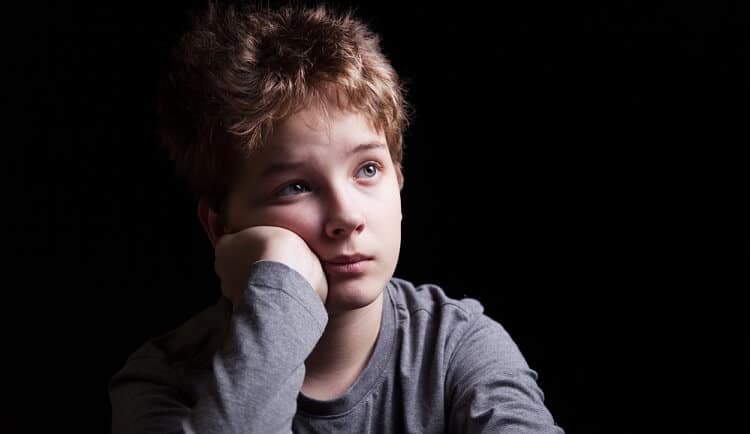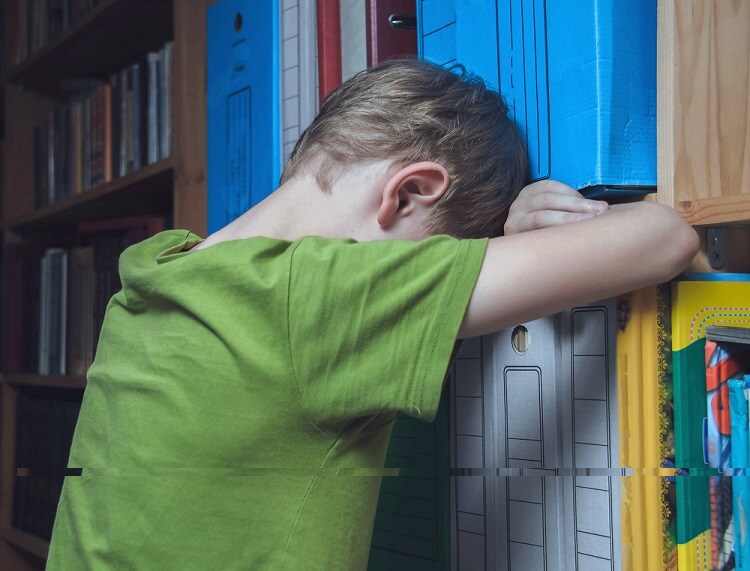Nearly every child has moments of defiance. Children and teenagers often test boundaries in order to learn about their world, and resisting authority can be a healthy way to assert independence and to define a child’s sense of self. However, for some children and teenagers, rebellion and irritability can become a pattern rather than an occasional outburst. These children and teenagers may be exhibiting signs of oppositional defiant disorder.
This article will give a brief overview of the symptoms and causes of oppositional defiant disorder, as well as some treatment options. Please note that this article is not a definitive research and its intention isn’t to diagnose. Please seek medical help and do not attempt to self-diagnose.

What is Oppositional Defiant Disorder?
Oppositional defiant disorder, commonly referred to as ODD, is characterized by a pattern of rebellion, irritability, and vindictiveness that is more pronounced than what we would typically expect from a child in his or her present stage of development. According to Johns Hopkins University, ODD is seen more often in boys and affects anywhere from 1% to 16% of school-age children, and symptoms typically emerge by age 8.
Symptoms of Oppositional Defiant Disorder
A child with ODD will display at least 4 symptoms from among the following categories over a period of at least 6 months:
- angry/irritable mood.
- often loses temper, is easily annoyed, or is angry and resentful.
- argumentative and defiant behavior.
- vindictiveness.
- frequently argues with authority figures, defies adult requests and rules, deliberately annoys people, and/or blames others for his or her own mistakes and behaviors.
- has shown spiteful behavior at least twice over the past six months.
These symptoms may indicate ODD when they occur alone, rather than as part of another health problem such as depression.
Causes of Oppositional Defiant Disorder
We know little about the causes of ODD. There is likely a genetic or inherited component to the disorder. A child who is naturally easygoing and resilient is less likely to develop ODD than a child who has a quick temper.
A child’s environment can also contribute to the development of ODD. Abuse and neglect can be factors, as can inconsistent discipline, lack of supervision, or overly harsh discipline. This is not to say that all children who live with these conditions will develop ODD. Rather, a neglectful or abusive environment increases a child’s risk.
Other Issues that Relate to Oppositional Defiant Disorder
Other mental health disorders such as depression, ADHD, or bipolar disorder can exacerbate the symptoms of ODD. For example, a child with ADHD who also has ODD will have an extremely difficult time controlling his or her impulses. This leads to increased frustration, which in turn makes the child more irritable, which then leads to more angry outbursts. This destructive cycle can be difficult to overcome without appropriate treatment of both disorders.

Oppositional Defiant Disorder Treatment Options
Various forms of therapy are available to treat ODD. Individual psychotherapy can help the child develop problem-solving and anger management skills, as well as self control and communication skills. Cognitive problem-solving training can help the child to recognize thought patterns that lead to problematic behavior so that he or she can change those patterns to stop the behavior before it starts.
Family therapy involves the parents and possibly siblings to help improve the family dynamic. This type of therapy focuses on interpersonal communication, coping strategies, and supporting family members as well as the child with ODD. Parent training and parent-child interaction therapy focus on helping parents learn how to interact with their child in an appropriate and constructive way to prevent frustration. These therapies give parents tools for discipline that avoid damaging the parent-child relationship.
Peer therapy can also be useful in treating ODD because it can help the child see that he or she is not alone, as well as learning about strategies that his or her peers may have discovered. Peer group therapy can help children learn social skills and skills for communicating with other children their own age as well.
Medication does not typically work for ODD. However, if other disorders are present, medication may help in managing the symptoms of those disorders, thus lessening frustration and enabling the child to better cope with his or her ODD symptoms.
Prevalence of Oppositional Defiant Disorder in the United States
Hard statistics about the prevalence of ODD in the United States are currently unavailable, in large part due to a lack of public awareness of the disorder. Many times a child with ODD is simply put under the umbrella term “difficult”. That is counterproductive and parents and teachers use harsher punishments to try to force the child to conform. This can backfire and make ODD symptoms worse, however, resulting in a spiral of increasingly defiant behavior.
Children with ODD who receive prompt and appropriate treatment show a high rate of success with managing their symptoms. The longer that ODD is left untreated, the more likely the child is to experience peer rejection. This leads to damaged relationships with adults, so early detection and treatment are crucial.

While there is no cure for ODD, one can manage it with treatment and therapy. Even older children can benefit from treatment for their ODD. Thus, they learn to foster positive relationships with their peers and authority figures.
Do you or someone you love suffer from ODD? What has helped you to cope with symptoms? Please share your story in the comments. If this article has been helpful, please share it on Facebook and Twitter.
Images taken from depositphotos.com.
